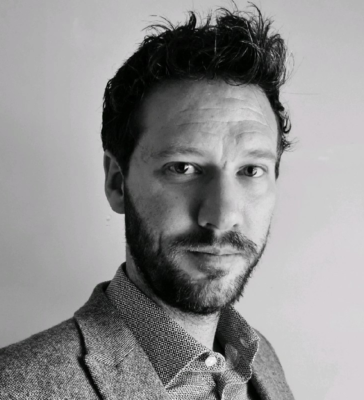
Joshua Morey
Current Employer/Organisation Name
HM Treasury
What have you been doing since leaving Exeter, and what are you doing now?
After leaving Exeter in 2018, I had a period travelling New Zealand, Australia and Indonesia where I learnt a lot about myself. Following this I joined the civil service where I became a policy advisor at the Department for Environment, Food and Rural Affairs. Here I worked to formulate some of our post Brexit trade policies including on food trademarking as well as our independent agri-food tariff policy with some sector specific work on sugar. Following just under two years here, I moved to HM Treasury as a negotiator on Financial Services, where I’ve worked to negotiate FTA text with Australia, as well as both India and the bloc of gulf countries, two negotiations I am still working on to this day.
Why did you choose this career? And what do you enjoy most about your work?
After leaving university I wanted to start my working career in a place where I could learn in a comfortable environment where there was focus on my development as well as gain exposure to the heart beat of where decisions are made. I enjoy the fact that firstly I work on some very interesting policy areas where I need to engage problem solving skills. In addition, the career gives me autonomy to try come up with innovative solutions which I pitch to my managers as well as using my interpersonal skills to talk to regulators plus colleagues from foreign governments and other UK departments to agree a way forward.
Please tell us if you were a member of any societies, groups or sports clubs?
I was part of both Geography Society and the Football club.
What did you enjoy most about your programme and what was the biggest highlight?
In general, I enjoyed the various topics we covered in my geography degree. In particular, given specialist software was needed for many of our assignments it meant we used to spend a lot of time together working through problems in the Hatherly Labs, which helped me to build strong friendships with people on the course. The California field trip was a personal highlight given the amazing surroundings and interesting places we visited.
What did you enjoy most about studying here?
My geography course was great fun and I also enjoyed the people I met and friends I made along the way. However, I also thought Exeter was a delightful city to study in. I really enjoyed how green the campus as well as how easy it was to escape to more rural surroundings such as along the River Exe to Topsham and Exmouth as well as Dartmoor. At Exeter I also enjoyed playing intramural hockey and football as well as being in the geography society.
Why did you choose to study at Exeter?
Firstly I chose Exeter due to the course, as I was allowed to pick both human and physical geography modules with some other universities not allowing me to do this. Secondly, being from a rural area of the UK, I wanted to study at a campus university that was close to a small city and had lots of green space. Exeter ticked all the boxes in this respect. I knew as soon as I visited on an open day that this the place I wanted to study.
What skills and experiences have been most useful for your career?
The analytical side of my geography degree has been very useful in providing effective advice for policy positions to ministers. In addition, the interactive lectures and group projects gave me great experience at being able to work within a team but also enjoy taking responsibility and leading a project when required. Although this has always been a string to my bow, university also enabled me to come out of my shell and interact with lots of different people which boosted my interpersonal skills. This has been particularly useful when explaining complex policy positions to both UK stakeholders and foreign governments.
What advice would you give to a current student who wishes to pursue your career?
My main piece of advice would be to join the UK civil service. It is an amazing place to work because firstly you are at the beating heart of UK government. This enables you to feed into and help the decision making process for some policy areas that have a real impact on both the UK and global populations. I have found that the civil service gives individuals a high level of autonomy to try develop and find solutions to some very complex problems. In addition, early in your career it is a great place to start, with lots of training opportunities to grow plus also an awareness that early in their career employees are still learning so there is a strong culture for providing feedback and also long term development. I left university and had no idea what I wanted to do. I went travelling where I had some amazing experiences and learnt a lot about myself. However, since then I’ve not had a clear plan of where I want my end up or what my dream job is, two things which all young people are expected to know, or find out. My advice would be to look for jobs that you find interesting (and therefore are more likely to enjoy) but also look for something in the role that will benefit you in the long term. Just keep going from role to role with that in mind and hopefully you’ll find some answers along the way!
What are your plans for the future?
In the immediate term, I am keen to stay in the civil service. I love also living in London, but I would be keen to hold a job overseas, maybe in a UK overseas posting which the civil service would allow me to do. However, I’m currently working in international trade which is an incredibly current area given the UK leaving the EU only 6 years ago. However, I’ve always held an interest in sport so I may look to work to do with this. Moreover, I still harbour ambitions of travelling both South East Asia and South America so these are on my to do list in the next few years.

